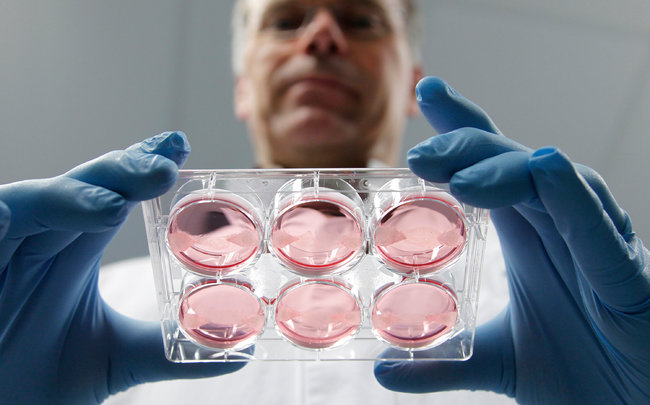Last week, the New York Times brought news of an upcoming burger taste test in London. Scientists have been hard at work developing new lab grown meat that they hope to turn into hamburger patties.
Dr. Post, one of a handful of researchers in the field, has made strides in developing cultured meat through the use of stem cells — precursor cells that can turn into others that are specific to muscle, for example — and techniques adapted from medical research for growing tissues and organs, a field known as tissue engineering. (Indeed, Dr. Post, a physician, considers himself first and foremost a tissue engineer, and about four-fifths of his time is dedicated to studying how to build blood vessels.)
Yet growing meat in the laboratory has proved difficult and devilishly expensive. Dr. Post, who knows as much about the subject as anybody, has repeatedly postponed the hamburger cook-off, which was originally expected to take place in November.
His burger consists of about 20,000 thin strips of cultured muscle tissue. Dr. Post, who has conducted some informal taste tests, said that even without any fat, the tissue “tastes reasonably good.” For the London event he plans to add only salt and pepper.
But the meat is produced with materials — including fetal calf serum, used as a medium in which to grow the cells — that eventually would have to be replaced by similar materials of non-animal origin. And the burger was created at phenomenal cost — 250,000 euros, or about $325,000, provided by a donor who so far has remained anonymous. Large-scale manufacturing of cultured meat that could sit side by side with conventional meat in a supermarket and compete with it in price is at the very least a long way off.
The scientists hope to be able to preview the meat in a taste test sometime this year.


